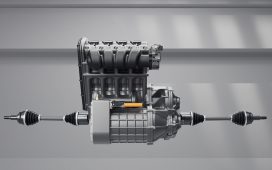Toyota says it has made a technological breakthrough that will allow it to halve the weight, size and cost of batteries, in what could herald a major advance for electric vehicles.
The world’s second largest carmaker was already pursuing a plan to roll out cars with advanced solid-state batteries, which offer benefits compared with liquid-based batteries, by 2025.
On Tuesday, the Japanese company said it had simplified production of the material used to make them, hailing the discovery as a significant leap forward that could dramatically cut charging times and increase driving range.
“For both our liquid and our solid-state batteries, we are aiming to drastically change the situation where current batteries are too big, heavy and expensive,” said Keiji Kaita, president of the Japanese auto firm’s research and development centre for carbon neutrality. “In terms of potential, we will aim to halve all of these factors.”
David Bailey, a professor of business economics at the University of Birmingham, said that if Toyota’s claims were founded, it could be a landmark moment for the future of electric cars.
“Often there are breakthroughs at the prototype stage but then scaling it up is difficult,” he said. “If it is a genuine breakthrough it could be a gamechanger, very much the holy grail of battery vehicles.”
Kaita said the company had developed ways to make batteries more durable and believed it could now make a solid-state battery with a range of 1,200km (745 miles) that could charge in 10 minutes or less.
The company expects to be able to manufacture solid-state batteries for use in electric vehicles as soon as 2027, according to the Financial Times, which first reported on Toyota’s claimed breakthrough.
Solid-state batteries have been widely seen as a potential gamechanger for electric vehicles, promising to reduce charging times, increase capacity and reduce the fire risk associated with lithium-ion batteries, which use a liquid electrolyte.
However, solid-state batteries have typically been harder and costlier to make, limiting their commercial application.
after newsletter promotion
Toyota said it believed it could simplify the production process, potentially making solid-state batteries easier to produce than lithium-ion ones.
The Japanese carmaker has been seen as something of a laggard compared with rivals in the electric vehicle market. In June last year it recalled 2,700 of its first electric vehicles because of concerns the wheels could fall off.
Last month, the Advertising Standards Authority banned adverts by Toyota and Hyundai for exaggerating the speed at which electric cars could be charged and misleading consumers about the availability of rapid charging points across the UK and Ireland.








